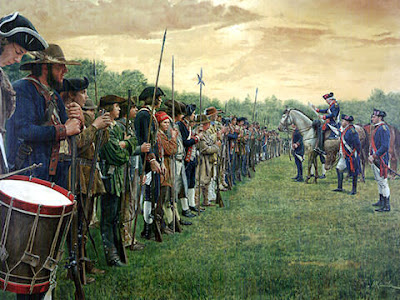 |
| Lincoln, c. 1860 (Library of Congress) |
President Abraham Lincoln remains known for his wit – his homespun, common sense, laconic wit – as well as one of greatest orators. Like Washington before him, Lincoln was known for taking the hard stand and seeing it through. Considered a master politician – or an unpredictable procrastinator, by some – Lincoln believed in a Union, undivided, and also free.
January 1, 2013 marked the 150th anniversary of Lincoln's Emancipation Proclamation. What a fitting anniversary for celebrating the words of the 16th president as well as the courage of the man himself.
Some homespun wisdom from Lincoln:
It's about character...
* Whatever you are, be a good one.
* Character is like a tree and reputation its shadow. The shadow is what we think it is and the tree is the real thing.
* Things may come to those who wait, but only the things left by those who hustle.
* I'm a success today because I had a friend who believed in me and I didn't have the heart to let him down.
* And in the end it is not the years in your life that count,
it's the life in your years.
 |
| Lincoln with the Union flag. |
* Nearly all men can stand adversity, but if you want to test a man's character, give him power.
* You cannot escape the responsibility of tomorrow by evading it today.
* Those who deny freedom to others deserve it not for themselves.
* Whenever I hear anyone arguing for slavery, I feel a strong impulse to see it tried on him personally.
Politics all around ...
* A house divided against itself cannot stand.
* America will never be destroyed from the outside. If we
falter and lose our freedoms, it will be because we destroyed ourselves.* Do I not destroy my enemies when I make them my friends?
The Union flag
At the start of the Civil War on April 12, 1861, there were 34 states, hence the Union flag had 34 stars (one star for every state). Despite the secession of Southern states, Lincoln believed it was important that the flag of the United States continue to reflect "the Union" of all the states. When Virginia was divided into the two states of Virginia and West Virginia (June 20, 1863), there were 35 states and Union flags with 35 stars. With Nevada's entry as the 36th state (October 31, 1864), some Union flags were made with 36 stars. By the end of the Civil War on April 9, 1865, Nevada had not been a state that long which is why it is less common to find Union flags with 36 stripes.
Given the history of the war and the dates and number of states, any Union flag could, correctly, have 34-36 stars. It is tradition that you generally find the reproductions of the Union flag with 35 stars, the most common version of the Union flag at that time.
 |
| The Union Civil War flag – a star for every state. |
Let it fly!





